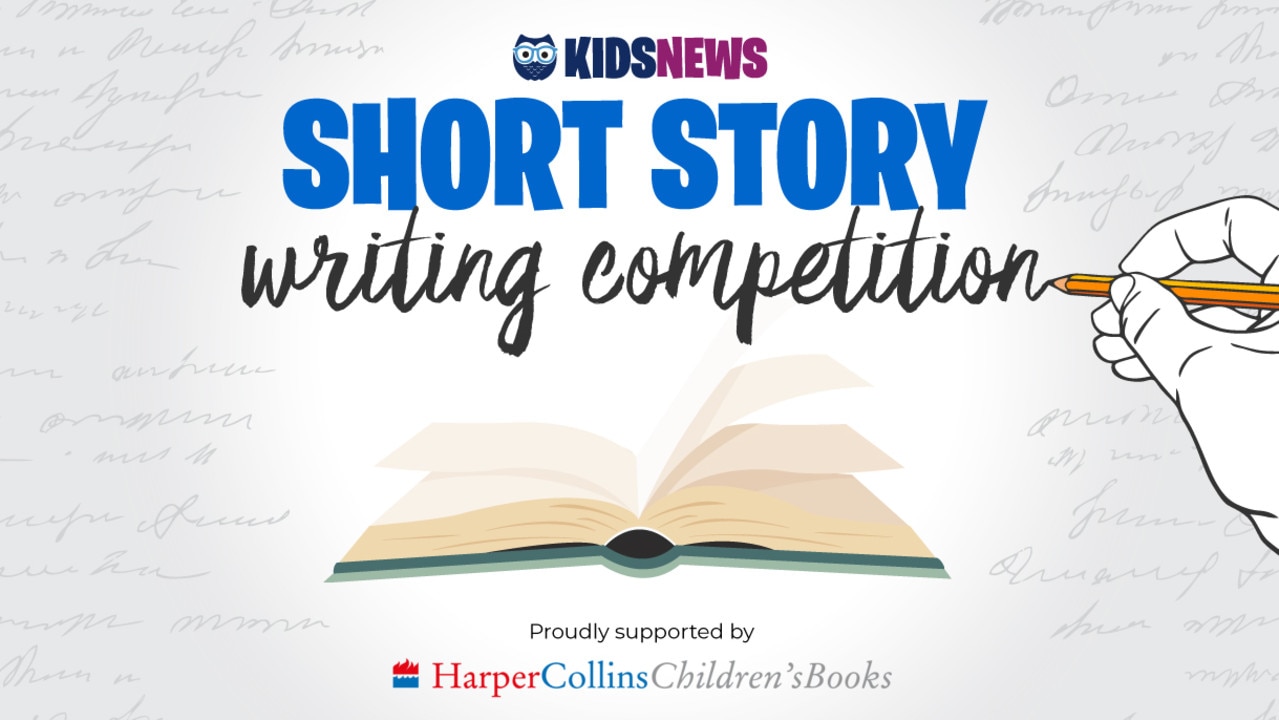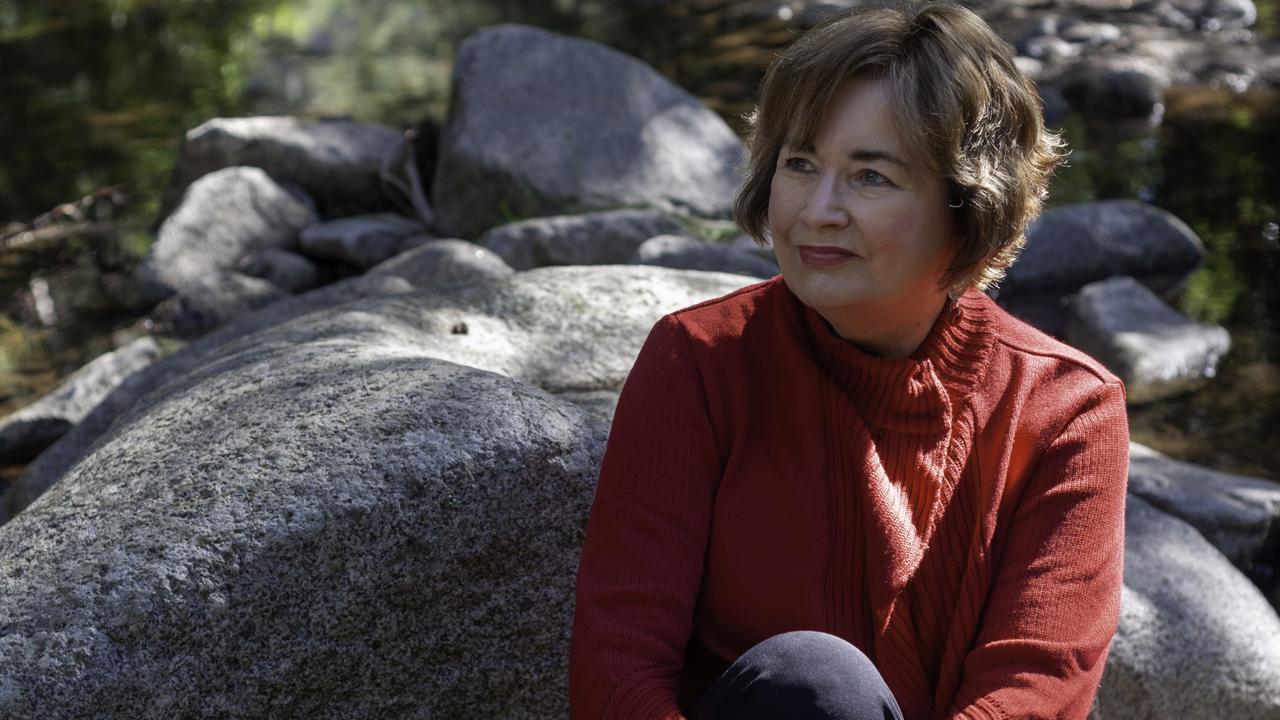Award-winning children’s author Jackie French give her top tips on how to write a great short story
Award-winning children’s author Jackie French gives her top tips on how to write a winning tale for the Kids News short story writing competition — and it involves eating chocolate

READING LEVEL: GREEN
NOTE: This competition is now ClOSED
Eating chocolate and listening to music could help you write a winning short story.
It’s true!
And with Kids News now calling for students to enter its Short Story Writing Competition, proudly supported by HarperCollins, we thought it was a good time to ask award-winning children’s book author Jackie French for her top writing tips and how to get started on a story.
Her ideas and suggestions below — including eating lots of chocolate — should help you find some inspiration*.
See details at the bottom of this story for how to enter the Short Story Writing Competition, which closes on October 31.
WRITING TIPS FROM JACKIE FRENCH
How can I get ideas?
That’s easy. If you want the inspiration for a story you just go to the nearest supermarket and ask the checkout person where you can buy half a kilo of ideas.
They’ll either start laughing or call the manager and have you chucked out … and that will give you a great story to write.

To be honest, you can’t buy inspiration. You can’t call it like a dog either. But it’s true — sometimes inspiration does just jump on you and you feel you HAVE to write a story.
The tips below ALWAYS give you a good story. I am serious about all of them so don’t laugh. They work.
STEP 1
Work out fascinating places, people, animals and what you are most interested in.
Pizza? Dinosaurs? Football? Write a story with pizza or dinosaurs or football or all three, or the day the volcano exploded in the schoolyard. Writing is fun, as long as you write about things that are fun to write about.
STEP 2
Go for a walk.
I have never gone for a walk without inspiration floating in from somewhere. Humans evolved* as walkers … and sometimes I think we function best when we’re walking. Charles Dickens, a great English writer of the Victorian era*, walked for enormous distances around London and in the countryside and wrote large rambling* novels.
Don’t take the dog for a walk. Don’t walk with your best friend or your baby brother either. Just walk, so your mind is open for the stories.

STEP 3
Play your favourite music.
Most writers I know either write to music or play music before they start. The area in your brain that appreciates music is very close to the language centre in your brain. Music will ALWAYS give you inspiration.
Play whatever music moves you most — doesn’t matter what. If you can, move to the music. Don’t think of anything but the music — until the idea comes.
Then start to write.
The last music festival I went to gave me ideas for three short stories. And the last concert gave me a novel and a half.
STEP 4
Eat some chocolate.
Yeah, I’m serious. That’s one of the reasons I’m, er, plump* — every book I write needs chocolate and I write a lot of books. But every kilogram I put on is a contribution* to Australian literature*.
I only eat chocolate when I sit down to write, which means as I love chocolate, I am VERY eager to write my books every day.
Of course, if you can reward yourself with an apple instead, it’ll be much better for you. And your books will be just as good. (I love apples, too. Most chapters take at least six apples.)

STEP 5
Write the last line of your story.
You can’t write the last line without working out where your story is going and how you want it to end. (But you can change the last line later.)
STEP 6
Write the most fascinating first sentence in the universe.
Try at least 20 first lines till you find one that will grab the reader like a velociraptor* (a very small one that only eats salad) and not let go. The hardest bit about writing is starting to write. Once you have that first sentence you will fly.
STEP 7
Write. Just write.
It doesn’t matter if it is TERRIBLE. “Trash” is your friend. It is much easier to rewrite your story, or add pieces to it or take them out, than it is to write from the beginning. Just write then throw out what doesn’t work and do those bits again.

STEP 8
Read your story to your dog, cat, the pigeons out the window or the toy wombat you had as a small kid — anyone who won’t answer back.
The stories on the page sound different when you read them out. You’ll think ‘Aha! Must change that.’
It will be wonderful. So, get writing and good luck!
HOW TO ENTER
Write a short story on any topic of your choice.
For entrants aged 11 years and over, your short story must be between 500 and 1000 words. For entrants aged 10 and under, your short story must be between 250 and 750 words.
Get your parent or guardian to sign the Permission to Publish and Consent Form HERE.
Then take the form to your teacher and ask them to email both the signed form and your short story to kidsnews@news.com.au with the subject ‘Short Story Competition’ before October 31.
First prize winners have the chance to win an iPad, HarperCollins book pack and have their own story published as a book for 10 family members and friends. There are also other prizes.
The competition, proudly supported by HarperCollins, is open to Australian students from Prep to Year 8 with categories for children 10 and under and students aged 11 and over.
Winners will be judged by a panel.
GLOSSARY
- inspiration: being mentally stimulated to do or feel something, especially to do something creative
- evolved: developed gradually
- Victorian era: the period of Queen Victoria’s reign, from 1837 to 1901
- rambling: lengthy or wordy
- plump: a full rounded shape
- contribution: gift
- literature: written works
- velociraptor: a small dinosaur
EXTRA READING
Story starter ideas for your story
Barney and the Secret of the French Spies
QUICK QUIZ
- What physical activity does Jackie French believes opens your mind to stories?
- How does music help writers?
- Name two foods Jackie recommends for inspiration?
- Why should you read your story to a dog or pigeon?
- Jackie says ‘trash’ is your friend. Why?
LISTEN TO THIS STORY
VCOP ACTIVITY
After reading the article, with a partner, highlight as many connectives as you can find in pink. Discuss if these are being used as conjunctions, or to join ideas and create flow.
HAVE YOUR SAY: In your opinion, what is the best tip Jackie French gives?
No one-word answers. Use full sentences to explain your thinking. No comments will show until approved by editors.

